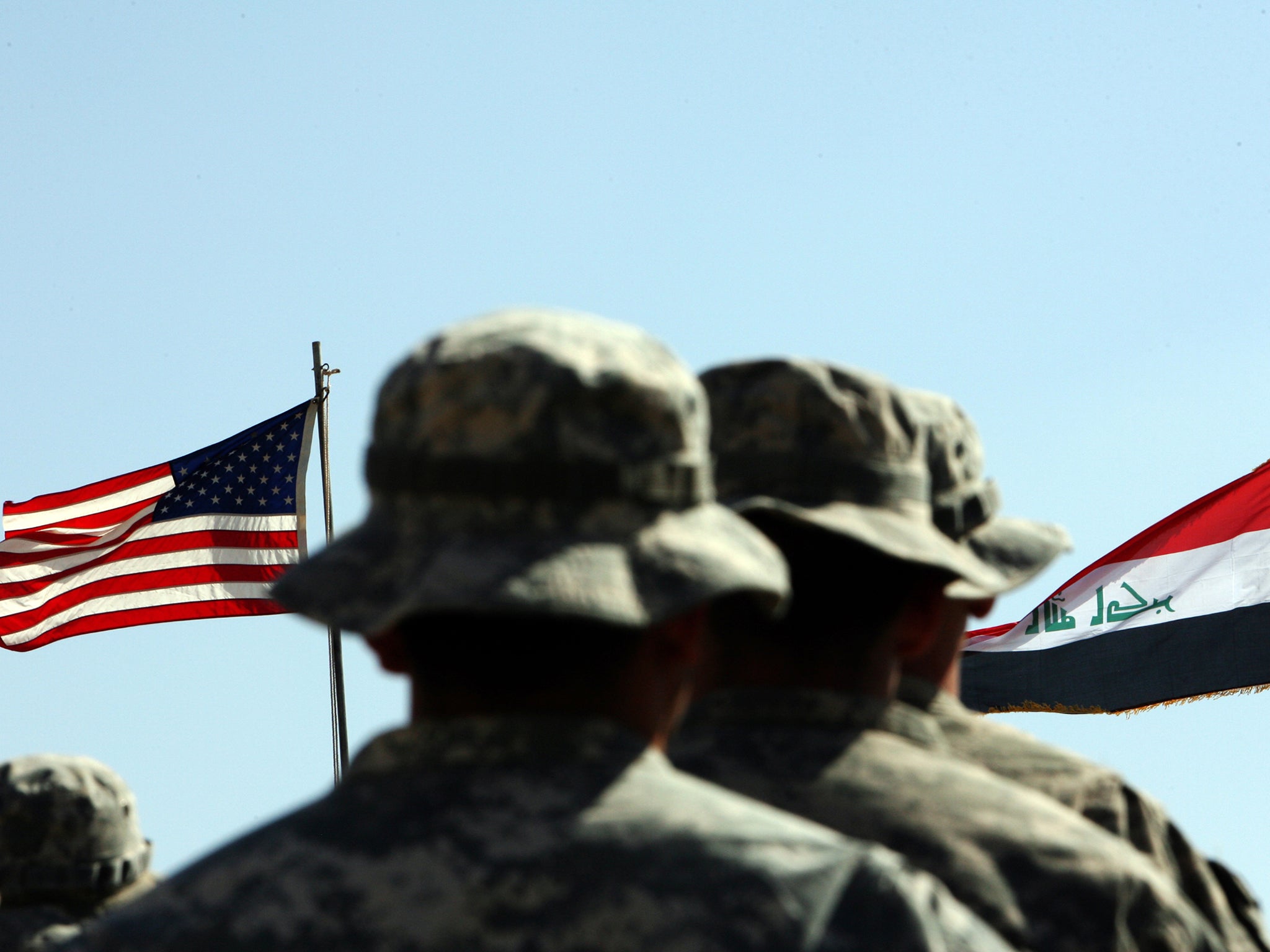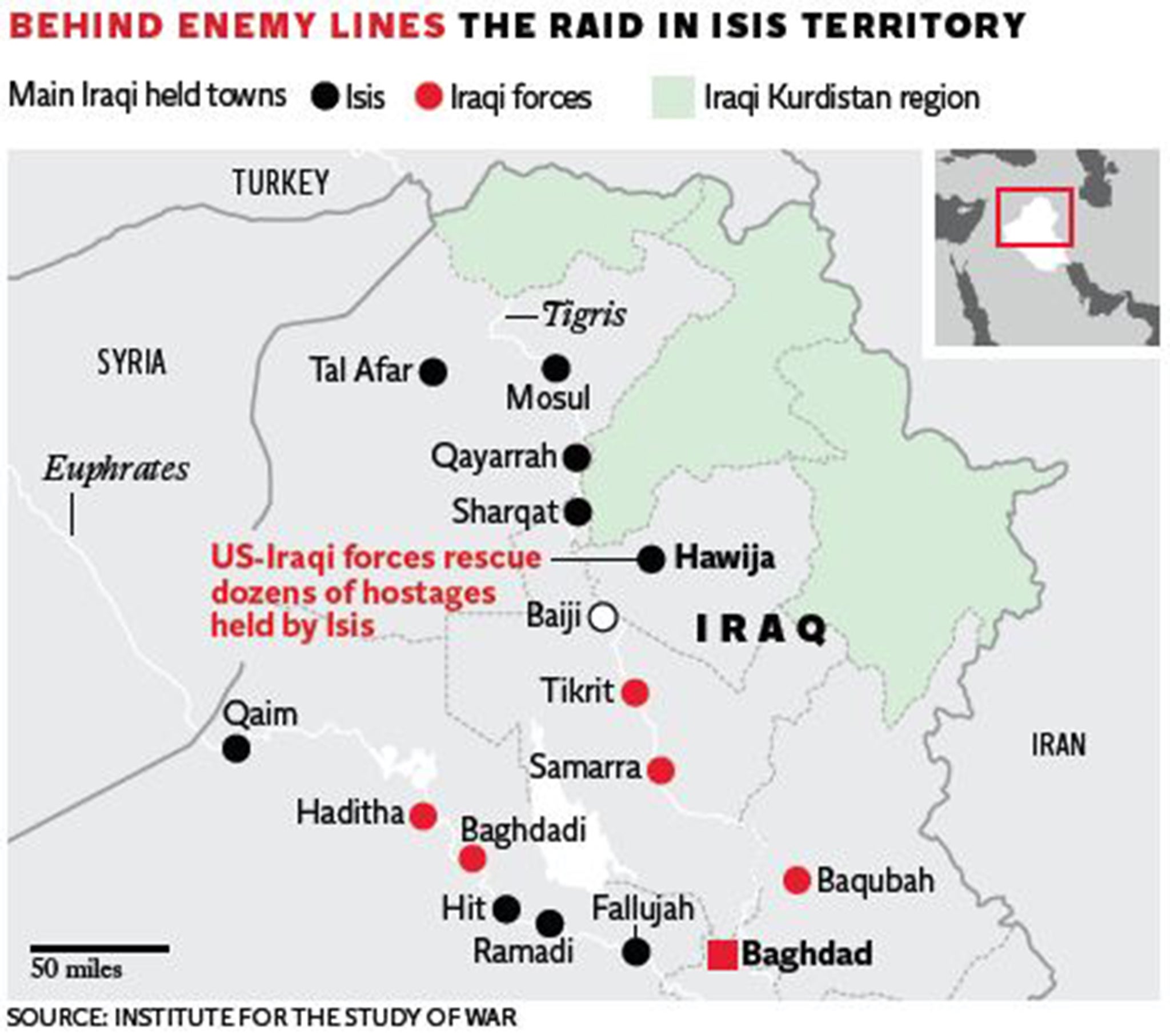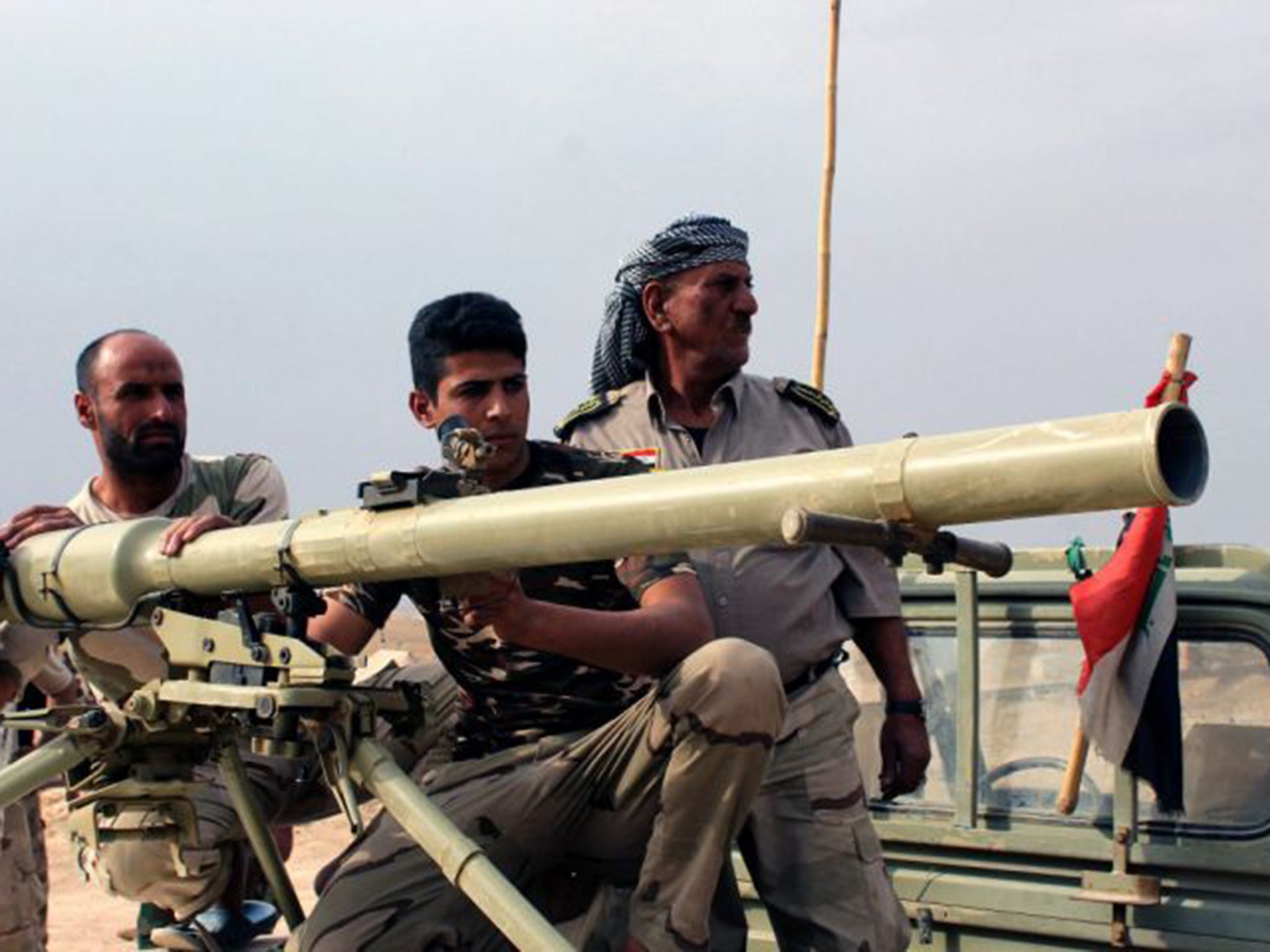Isis hostage rescue mission frees 70 prisoners from 'mass execution' as US special forces soldier is killed
The Pentagon says the raid recovered a 'trove' of intelligence about the militants

Your support helps us to tell the story
From reproductive rights to climate change to Big Tech, The Independent is on the ground when the story is developing. Whether it's investigating the financials of Elon Musk's pro-Trump PAC or producing our latest documentary, 'The A Word', which shines a light on the American women fighting for reproductive rights, we know how important it is to parse out the facts from the messaging.
At such a critical moment in US history, we need reporters on the ground. Your donation allows us to keep sending journalists to speak to both sides of the story.
The Independent is trusted by Americans across the entire political spectrum. And unlike many other quality news outlets, we choose not to lock Americans out of our reporting and analysis with paywalls. We believe quality journalism should be available to everyone, paid for by those who can afford it.
Your support makes all the difference.A secret raid to free dozens of hostages facing “imminent mass execution” has led to the death of the first US serviceman in Iraq since America’s war with Isis began.
In the face of the continued failure to eliminate Isis in Iraq and Syria, the raid was launched in support of Kurdish forces. Reports suggested trenches had already been dug to bury the prisoners when the attack was launched on an Isis prison which was once the home of a regional judge.
Almost 70 prisoners were freed in the operation near Hawija in northern Iraq which was overrun by Isis last summer. Among those freed were 20 members of the Iraqi security forces.
Confirming the death of a special forces soldier, the Pentagon said a “trove” of intelligence about Isis had been recovered. The raid had been requested by the semi-autonomous Kurdish Regional Government (KRG) in northern Iraq. The US forces were acting in support of the Kurdish region’s militia, the Peshmerga.
Sources in the US Defence Department said that five American helicopters, including a Chinook and Black Hawks, had been involved. The American forces were part of the US Joint Special Operations Command.
Salar Karim, a member of the Peshmerga 10th brigade based in the village of Gharra, said he saw six helicopters travelling towards Hawija at 2am. He said the raid had lasted for around 90 minutes.

“They cut off roads and raided the place successfully,” Najmaldin Karim, the governor of the surrounding Kirkuk province, told The New York Times. “They were able to take people with them.”
A KRG statement said more than 20 Isis fighters were killed. “This operation was planned and launched after receiving information that the hostages faced imminent mass execution,” said the Pentagon press secretary Peter Cook. He said the raid had been “consistent with our counter-Isil [Isis] effort to train, advise and assist Iraqi forces.”
The Pentagon said five Isis fighters had been detained by the Kurdish forces and several others killed. The unnamed US serviceman was wounded in a firefight and later died.
General Lloyd Austin, the commander of US Central Command, said: “We commend and congratulate the brave individuals who participated in this successful operation that saved many lives, and we deeply mourn the loss of one of our own who died while supporting his Iraqi comrades engaged in a tough fight.”
The man’s death was the first of an American serviceman in Iraq since the US military withdrew from the country in 2011. A US-led coalition has been conducting daily air strikes against the militant group for more than a year. Four Peshmerga soldiers were also wounded in the operation.
A spokesman for Sheikh Jaafar Mustafa, a senior Peshmerga commander, confirmed to The Independent that the raid took place but did not provide any further information.
This operation was planned and launched after receiving information that the hostages faced imminent mass execution
Hawija is some way south of the Kurdish region, but the Peshmerga are considered a more disciplined and effective military force than the Iraqi army. Its co-operation with the US military may generate resentment in Baghdad, where the central government still clashes with Kurdish leaders over oil-revenue sharing and the Kurds’ increasing political autonomy.
“An initial examination showed there are no Kurds among the rescued hostages. The hostages have been handed over to authorities after medical evaluations and care,” said Kurdish authorities.
Hawija, 40 miles west of the Kurdish-controlled city of Kirkuk, was captured by Isis last year and has since become a stronghold for the group, which also seized the city of Mosul and other parts of northern and western Iraq. Speaking to The Independent in May, Sabhan Khalef Ali al-Juburi, Hawija’s former mayor, said: “Isis gave me the option to do what they said or I would be killed.” Mr Juburi said he had been knocking on the doors of Kurdish and Iraqi officials for help to establish a Sunni force to retake Hawija, but had little success.
Since then, Kurdish forces have been slowly regaining land from Isis. Last month, the Security Council announced that the Peshmerga had cleared more than 54 square miles in western Kirkuk. That attack was backed by coalition air strikes which hit 30 Isis positions.

Brett McGurk, the coalition’s US deputy special presidential envoy, described Thursday’s pre-dawn rescue operation as “heroic”, saying: “This complex mission saved many lives, killed and captured a number of Isil [Isis] terrorists, and recovered important intelligence.”
The US serviceman is the third member of the anti-Isis coalition forces to be killed during the conflict. In January, the downed Jordanian pilot Moaz al-Kasasbeh was executed by Isis fighters. In March, a Canadian soldier died in a friendly fire incident.
The Iraq war, which claimed the lives of more than 4,000 US service members, remains fresh in American minds, and the outcome of this operation will test US public opinion on the conflict with Isis. American troops have for the most part been kept far away from ground combat, though US special forces are known to have conducted operations against Isis in Syria. This is their first confirmed involvement in a ground operation against the group in Iraq.
In recent weeks, the US-led coalition and Iraqi forces have intensified their strikes on Isis forces in attempts to dislodge them from strategic locations including Baiji, another small city close to Hawija in northern Iraq. In early September, Kurdish security forces reported Isis fighters had kidnapped dozens of men near Hawija, but it is not yet clear whether they were the same men freed in Thursday’s rescue mission. Isis regularly threatens to execute its prisoners.